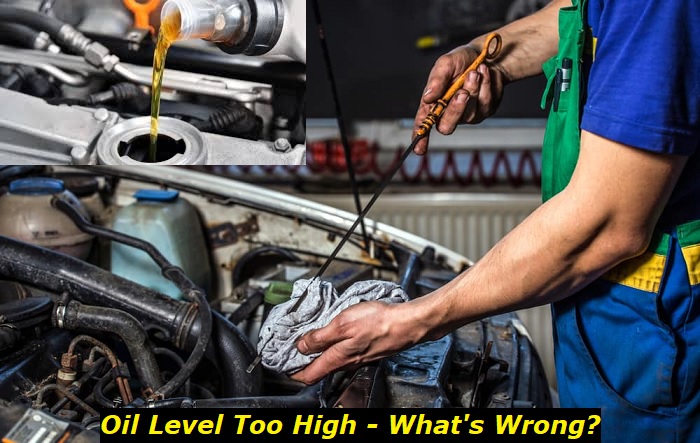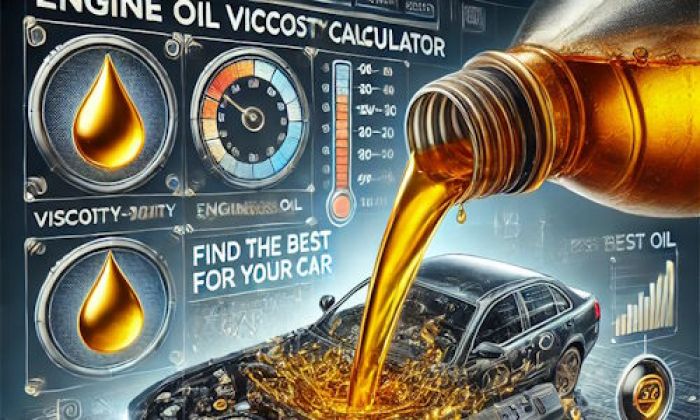Checking the oil regularly has to be one of the most common maintenance operations that a driver can do to their car. If you think about it, the engine oil is crucial in its functioning and any sort of problem related to oil starvation or dilution can rapidly damage an engine.
Oil level problems highlights
- Level of urgency:medium
- Average mileage:not related to mileage
- Repair cost:$5 - $550
- DIY repair:yesbutmaybe complicated
- Commonreasons:overfilled oil, coolant leaking into oil, gas leaking into oil
- If ignored:fatal engine damage, catalytic converter damage
- How to solve:add oil or pump it outdependingon the nature of the problem

Why is the oil level too high on the dipstick?
Going back to the main question of how this thing can even happen, you should know that this isn't even that uncommon. As strange as it might sound, this phenomenon is not particularly rare and it can happen to pretty much any vehicle with an internal combustion out there, regardless of whether it is powered by gasoline or diesel. Here are a few reasons why the oil level might have increased:
1) Incorrect checking of the oil level
Even if this isn't an actual fault, you might want to correctly check the oil level on your vehicle before worrying about something that might not even be faulty. You should always check the oil level when the car is parked on a perfectly flat surface, to avoid false readings. We would also advise you to check the oil with a cold engine, but some manufacturers will also tell you to check it after the car has been warmed up, but by turning the engine off and waiting about 5-10 minutes. If your car doesn't have a physical dipstick, the flat surface parking also applies.
2) Incorrect filling/draining process
Maybe it was someone new at your local shop or maybe it was you, but regardless of who it was, the oil that is added must be perfectly measured. This also applies to the draining process. Sometimes, not all of the oil is drained and when the new one is added over the old one, you will probably notice an increase in level, even if you thought you added exactly the right amount of oil. If you decide to change the oil and oil filter yourself, always do your research before doing anything, so that you know exactly how much oil you should add and how much you should drain.
3) Fuel in the oil
Fuel contamination is also a relatively common fault and what this basically means is that fuel is getting into the oil pan, thus increasing the oil level.
4) Coolant in the oil
Just like in the case of the fuel, coolant might also be getting into the oil pan. This might be the case if you notice that the oil on the dipstick is slightly discolored or if you notice some milky residues. Components such as the cylinder head gasket might be faulty, which could cause coolant to enter the cylinders and end up in the oil pan.
5) Diesel vehicle regeneration process
This only applies to vehicles that are equipped with diesel particulate filters (DPFs), so if yours doesn't have one, you probably shouldn't worry about this. Sometimes, during the regeneration process, fuel might get into the oil pan, in which case you will notice an increase in level.
What can an increased oil level lead to?
Now that you understand how the oil level can rise all of a sudden, we believe that it's also important for you to know that this isn't healthy at all for the engine and what exactly can go wrong. Here are a few things that could happen because of this:
- Damaged seals and gaskets
Because of the excess oil level and pressure, the weakest seals and gaskets will give up first. Even though the vehicle might not be that old or if the mileage is quite low on it, you might notice all sorts of oil leaks because of this.
- Accelerated wear on the engine components
If we're talking about things like fuel or coolant dilution, things should be quite easy to understand. If you think about it, the engine oil has a certain viscosity to it and if anything were to interfere with it, it will lead to accelerated wear on all of the crucial engine components, such as the crankshaft and camshafts.
- Crankcase ventilation problems
The crankcase ventilation system might literally suck all of the excesses, which could lead to a sudden loss of oil.
- Spark plug failure
Spark plugs are designed to burn fuel and not oil, and if there's too much oil getting to them because of a faulty crankcase ventilation system, for example, it can damage them.
- Catalytic converter problems
Again, because of what the crankcase ventilation system does with the excess oil, this might end up in the catalytic converter which could permanently damage it. This is especially unpleasant because catalytic converters are usually quite expensive to replace.
How to fix problems?
Fixing problems is quite a delicate topic since this isn't something that you might want to tackle at home unless you are quite an experienced DIY mechanic. Some people might find it easy to simply siphon the excess oil out through the dipstick tube and call it a day. This solution might be the one for you only if some extra oil has been added by mistake.
However, if something else is causing issues, we believe that it would be best to take your car to a specialized shop. If we're talking about things like a damaged cylinder head gasket, you should know that not only do you have to remove half of the engine to get to it, but also send the cylinder head itself to a shop that has the specific tools used to verify whether it's warped or not.
How to avoid such issues?
Here are a few things that you could do to avoid such issues:
- Avoid excessive idling
We know how annoying it can be in winter to set off after just a minute when the heater still isn't blowing hot air, but this is way healthier for the engine than letting it idle for 15 minutes. Excessive idling is also quite bad for the engine even if it's already warned, so we would advise you to avoid doing it as much as you possibly can.
- Replace oil regularly and only use the recommended oils
Oil services shouldn't be ignored at any cost and you should only use the oils recommended by the vehicle's manufacturer. The oil is vital to the engine and you should definitely not skip oil services, since this can lead to permanent engine damage.
- Avoid heavy traffic
Stop-and-go traffic is harmful not only to the clutch in manual transmission-equipped vehicles but also to the engine. All engines prefer running at a constant speed, temperature, and oil pressure, which is why constantly setting off and stopping can cause harm over the long term.
- Do not accelerate hard on very short distances
You should do this to avoid flooding the engine with too much fuel that might remain unburned and will therefore end up in the oil pan. This will not only cause the level to rise but also accelerated wear on all of the components, because of oil dilution.
- Check for fuel/coolant leaks
Make sure that there isn't any possibility of fuel or oil ending up in the oil pan to avoid problems later. There are special tests for the cylinder head gaskets that will tell you whether there's a fault with this gasket and most shops out there can probably do them for you.
Should you drive like this?
In a word? No. You should definitely not drive your car like this, since this kind of problem can lead to more serious problems later. In some cases, the damage to the engine can get to such an extent that it would simply require a complete engine rebuild. Do you want that to happen? Probably not.
Final thoughts
The oil is vital to the engine of a car and if its level is either too low or too high, you will almost certainly encounter issues, some of which even lead to permanent engine damage. One thing we would definitely recommend to you is to check the oil as often as you possibly can.
About the authors
The CarAraC research team is composed of seasoned auto mechanics and automotive industry professionals, including individuals with advanced degrees and certifications in their field. Our team members boast prestigious credentials, reflecting their extensive knowledge and skills. These qualifications include: IMI: Institute of the Motor Industry, ASE-Certified Master Automobile Technicians; Coventry University, Graduate of MA in Automotive Journalism; Politecnico di Torino, Italy, MS Automotive Engineering; Ss. Cyril and Methodius University in Skopje, Mechanical University in Skopje; TOC Automotive College; DHA Suffa University, Department of Mechanical Engineering






Add comment